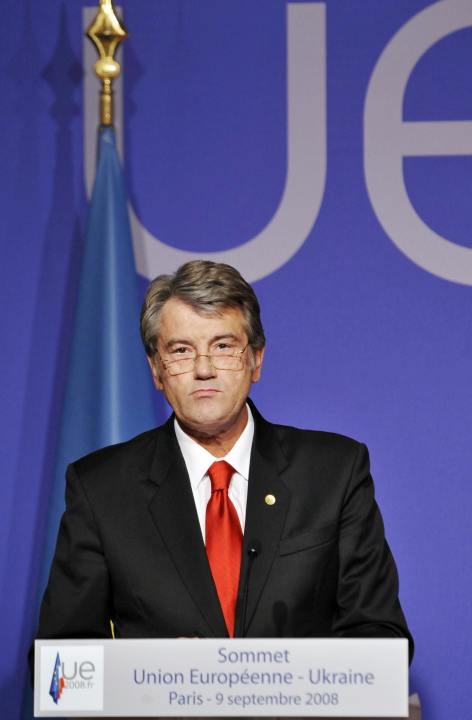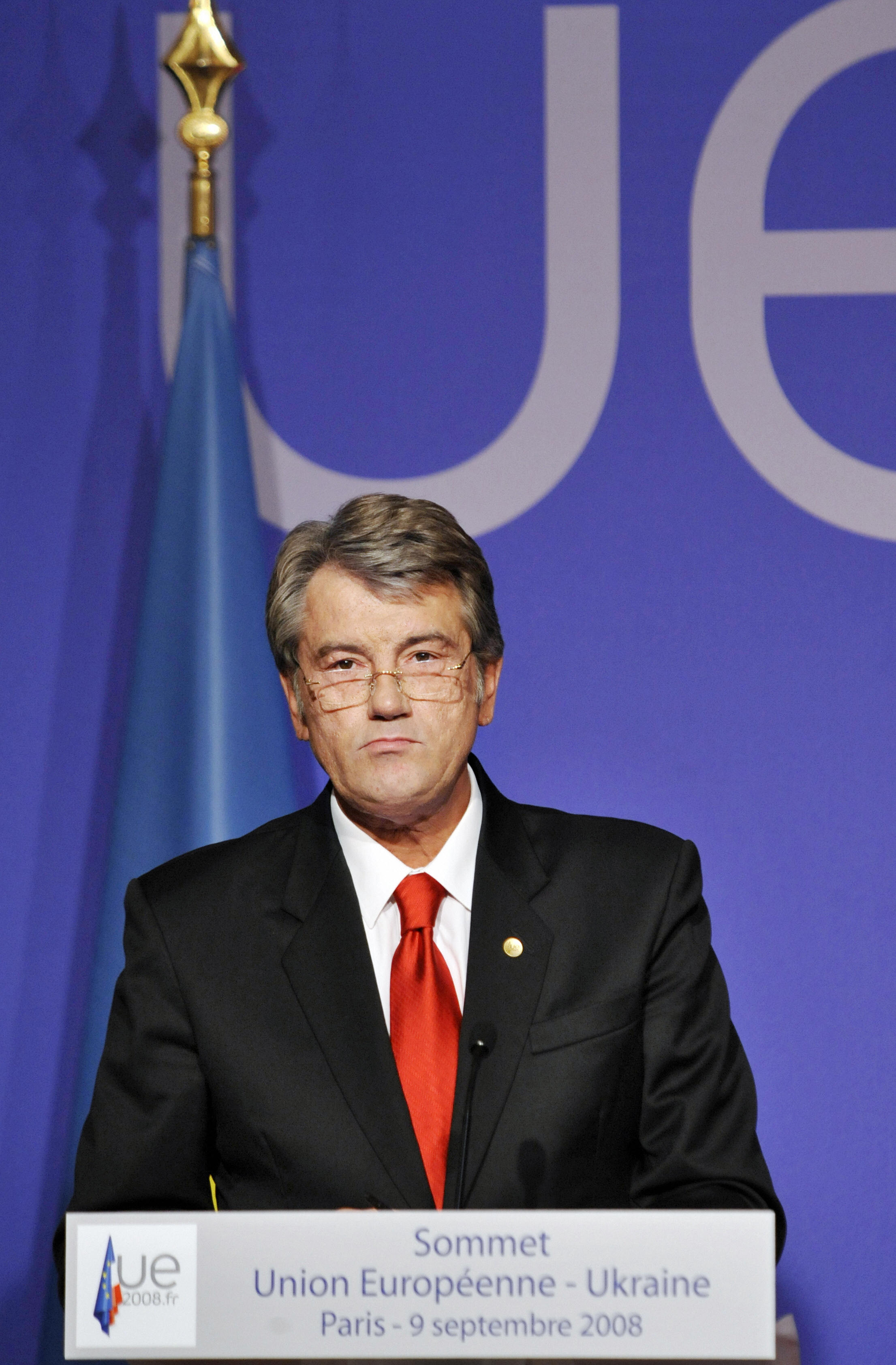 After months of squabbling and years of tension, Ukraine’s ruling pro-Western coalition has officially collapsed. The country’s scar-faced President Viktor Yushchenko could no longer work with his photogenic Prime Minister, Yulia Tymoshenko.
After months of squabbling and years of tension, Ukraine’s ruling pro-Western coalition has officially collapsed. The country’s scar-faced President Viktor Yushchenko could no longer work with his photogenic Prime Minister, Yulia Tymoshenko.
Tensions have been running high between the two leaders of the Orange Revolution for years and have recently been exacerbated by Russia’s war in Georgia and the countdown to the 2010 presidential election. Yushchenko has accused Tymoshenko of keeping quiet about Russia’s invasion of Georgia in return for Moscow’s support in a campaign to supplant him as president.
Andrew Wilson, a Ukraine expert who sits down the hall from me at the European Council on Foreign Relations, called today’s events “sadly inevitable”. Inevitable, in part, because Russia has been working hard on building up internal splits. Vladimir Putin was upset that the Orange Revolution took place and it has not escaped notice that Russia’s arguments over South Ossetia – that Moscow needed to protect Russian passport-holders – could easily be applied to the separatist Crimean peninsula, where more than half of the population describe themselves as Russians. Crimea is also home to the Russian Navy and thus crucial to Russia’s ability to project power. Think Serbia’s cultural ties to Kosovo, but with a massive strategic asset to boot.
Last week, the EU sought to help Ukraine – and keep the governing coalition together – but its promises of support stopped short of a commitment to EU membership. In the event, it probably was too little and too late, as Tymoshenko had already joined forces with the east Ukraine-based Party of Regions – the governing party the Orange Revolution sought to bring down – and rammed through a law to reduce presidential power.
It is hard to see how the crisis will be resolved. President Yushchenko’s powers to dissolve parliament without calling presidential and parliamentary elections are constitutionally dubious. When he did so in 2007, he got away with it as most people believed the political system needed shaking up. But he is unlikely to get the benefit of the doubt if he tried it this time from either the EU or Ukraine’s voters.
In all likelihood, something bolder—including presidential and parliamentary elections and even a plebiscite on a new constitution—will be required to break the political logjam. But this will leave plenty of scope for Russia to play its nefarious games. Is Europe – and Britain – ready for what could potentially become a counter-Orange Revolution?







Comments